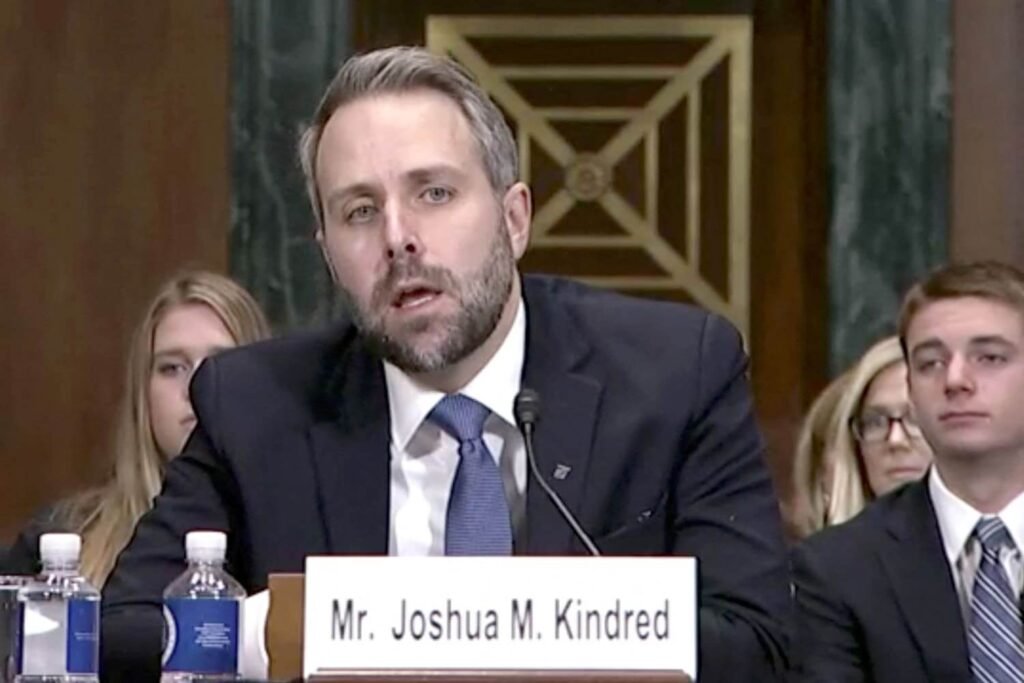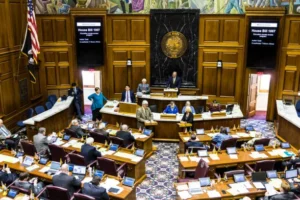The Alaska Bar Association disbarment recommendation against former U.S. District Judge Joshua Kindred followed a board vote without dissent Thursday afternoon. Kindred, once appointed by Donald Trump to Alaska’s federal bench, resigned last year after investigators uncovered serious misconduct and workplace improprieties.
The investigation revealed Kindred maintained a sexualized relationship with a law clerk, lied to investigators, and fostered hostility within his chambers. Additional improprieties linked to the U.S. attorney’s office surfaced later, further intensifying scrutiny and damaging confidence in Alaska’s judicial institutions.
Bar association president Rebecca Patterson confirmed Kindred refused participation during the inquiry, despite repeated requests for response throughout several months. Assistant counsel Louise Driscoll explained the grievance process began unusually, with the association’s counsel filing it directly in November.
Driscoll emphasized the association fielded numerous calls from concerned citizens following revelations about Kindred’s misconduct and subsequent resignation from the bench. The investigation slowed because Kindred failed to respond, left his listed address, and former acquaintances reported they no longer knew him.
Ultimately, a process server discovered Kindred at his mother’s house, where she answered the door while he sat visibly inside. Despite confirmed notice, Kindred still refused cooperation, prompting a committee in June to recommend disbarment for serious ethical and professional violations.
Driscoll underscored Kindred’s dishonesty toward federal investigators, stressing that public trust depends on lawyers consistently maintaining integrity and truthfulness. She said Kindred’s misconduct jeopardized dozens of cases by creating unresolved conflicts of interest that cast doubt on judicial outcomes.
Furthermore, Kindred’s resignation left Alaska’s district court with only one active judge, straining resources and delaying federal case proceedings significantly. The committee initially expressed sympathy for Kindred’s hardships, but the board removed that note, insisting equal treatment for all attorneys.










